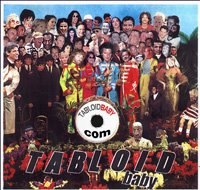
Remember the Israel Baseball League? How could you forget? Tabloid Baby's comprehensive coverage of the disastrous 2007 season and the tragicomic failed attempts to carry on led to our editor and Our Man Elli in Israel being submitted for a Pulitzer Prize-- being cut off at the pass by gatekeeper Sig Gissler-- and given a place in the Baseball Hall of Fame at Cooperstown. Now, a new group of sportsminded US businessmen with stars-- and shekels-- in their eyes-- are ready to give it another go. Our Man Elli leads us to the article in YNetNews, noting that it "mistakes Martin Indyk for Dan Kurtzer":
American businessmen, including one of the owners of legendary baseball team The New York Yankees – which is worth approximately $1.5 billion – are promoting an initiative to establish a professional baseball league in Israel.
The businessmen visited Israel and held meetings with Vice Prime Minister and Minister of Regional Development Silvan Shalom and Jerusalem's Mayor Nir Barkat, in which they asked for their assistance.
As part of the initiative, the businessmen proposed to build a baseball stadium near Jerusalem's Teddy Stadium, which will serve as Israel's central baseball hub.
Following the meeting, Barkat promised to promote the project and help find a proper location for the construction of the stadium.
Minister Shalom offered the businessmen governmental aid, if they were to build stadiums in the country's northern and southern regions.
Officials were also examining the possibility of building a stadium in Netanya, which brands itself as Israel's sports hub.
One of the men involved in the project is billionaire Jeffrey Rosen, who owns Israeli basketball team Maccabi Haifa.
The businessmen have also approached Israeli diplomats, and asked them to help coordinate meetings with Israeli officials that can help promote the project.
The entrepreneurs are aware of the fact that baseball is not very popular in Israel, but believe that with time it can gain a following. At first, they plan on catering to American expatriates living in Israel, who continue to follow the popular American sport.
Past attempts to import the sport have proved unsuccessful. In 2007, the first professional Israeli baseball league was established, and one of its managers was former US ambassador to Israel Martin Indyk.
Six teams participated in the league's first season, but the second season was cancelled after the league suffered financial loses. Despite the failure of previous initiatives, the American entrepreneurs, who enjoy the support of The NY Yankees, want to have another go at it, and believe this time they will hit a home run.
Cick here to read Tabloid Baby's entire coverage of the Israeli baseball fiasco.
NY Yankees make aliyah
Co-Owner of legendary American baseball team
promotes initiative to establish
professional baseball league in Israel
Itamar Eichnerpromotes initiative to establish
professional baseball league in Israel
American businessmen, including one of the owners of legendary baseball team The New York Yankees – which is worth approximately $1.5 billion – are promoting an initiative to establish a professional baseball league in Israel.
The businessmen visited Israel and held meetings with Vice Prime Minister and Minister of Regional Development Silvan Shalom and Jerusalem's Mayor Nir Barkat, in which they asked for their assistance.
As part of the initiative, the businessmen proposed to build a baseball stadium near Jerusalem's Teddy Stadium, which will serve as Israel's central baseball hub.
Following the meeting, Barkat promised to promote the project and help find a proper location for the construction of the stadium.
Minister Shalom offered the businessmen governmental aid, if they were to build stadiums in the country's northern and southern regions.
"The entrepreneurs are aware
that baseball is not
very popular in Israel,
but believe it can
gain a following."
that baseball is not
very popular in Israel,
but believe it can
gain a following."
Officials were also examining the possibility of building a stadium in Netanya, which brands itself as Israel's sports hub.
One of the men involved in the project is billionaire Jeffrey Rosen, who owns Israeli basketball team Maccabi Haifa.
The businessmen have also approached Israeli diplomats, and asked them to help coordinate meetings with Israeli officials that can help promote the project.
The entrepreneurs are aware of the fact that baseball is not very popular in Israel, but believe that with time it can gain a following. At first, they plan on catering to American expatriates living in Israel, who continue to follow the popular American sport.
Past attempts to import the sport have proved unsuccessful. In 2007, the first professional Israeli baseball league was established, and one of its managers was former US ambassador to Israel Martin Indyk.
Six teams participated in the league's first season, but the second season was cancelled after the league suffered financial loses. Despite the failure of previous initiatives, the American entrepreneurs, who enjoy the support of The NY Yankees, want to have another go at it, and believe this time they will hit a home run.
Cick here to read Tabloid Baby's entire coverage of the Israeli baseball fiasco.






































































